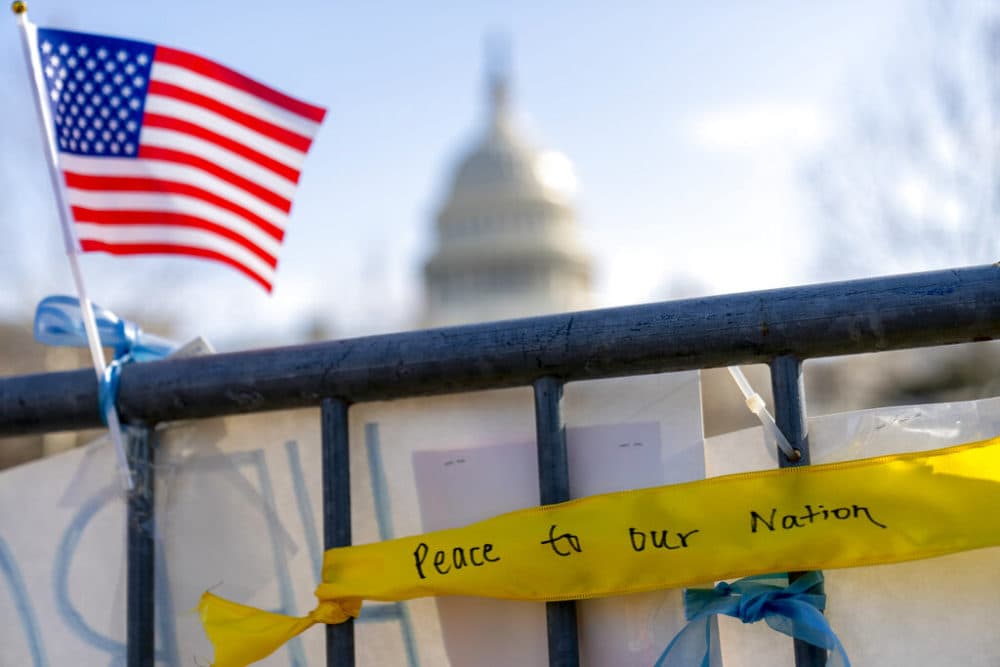Advertisement
'America Stands On A Knife's Edge': Eddie Glaude On The Deep Divisions The Country Faces
Resume
This Inauguration Day marks a day of firsts: The nation watched the first Latino appointed to the Supreme Court, Justice Sonia Sotomayor, swear in Kamala Harris, the first woman of color elected vice president.
The backdrop of this progress has been overshadowed in many ways by the specter of extremist violence, as thousands of National Guard troops patrolled Washington, D.C., to ensure the inauguration went smoothly.
The threat of violence coinciding with this historic day shines a light on “the ongoing contradictions that have defined American life since our founding,” says Eddie Glaude, professor of African American studies at Princeton University and MSNBC contributor.
“In some ways, what we're witnessing is this kind of stark contrast between a dying world that's clinging to life and a world that's desperately trying to be born,” he says, “or one might describe it as an America that's trying to be born.”
Many Americans are expressing their discontent with the demographic shifts happening in the United States — a juxtaposition that represents two distinct nations, he says.
The most recent NPR poll shows 65% of the country believes Biden legitimately won the election, while 70% of Republicans still believe former President Trump's false claims about election fraud.
“America stands on a knife's edge” as citizens struggle with unemployment, housing instability and food insecurity during the pandemic, he says. President Biden needs to respond to the crisis at hand, Glaude says, rather than worry about political implications or his reelection.
“The best approach is simply to respond at scale to the depth of the crisis,” he says. “And that will impact the everyday lives of Americans no matter their ideological position.”
Biden said during his inauguration speech that "justice will be denied no longer," speaking to issues such as systemic racism. The president’s message of unity needs further definition, Glaude says.
Unity could mean unifying citizens under a new social contract that abandons the selfishness that defined American life for the last 40 years and shattered the country’s social safety net, he says, and instead replaces it with emphasis on the public good.
“It's going to require us finally leaving behind this idea that some Americans ought to be valued more than others because of the color of their skin — because the folks who attacked the Capitol, who sacked the Capitol, actually believe that white voters matter more than others,” he says. “We have to uproot that if we're going to move forward.”
Cristina Kim produced this story and edited it for broadcast with Tinku Ray. Allison Hagan adapted it for the web.
This segment aired on January 20, 2021.

